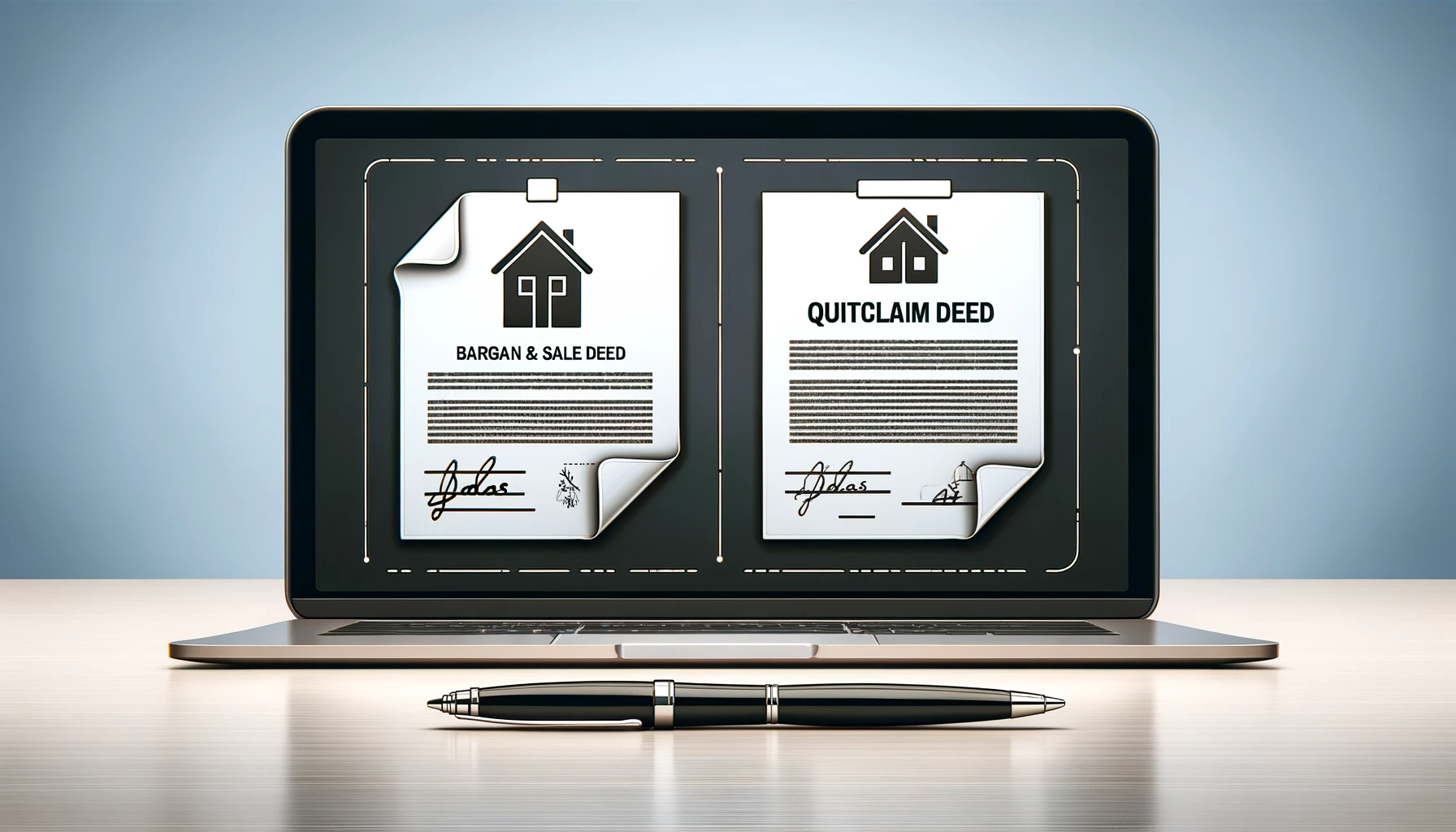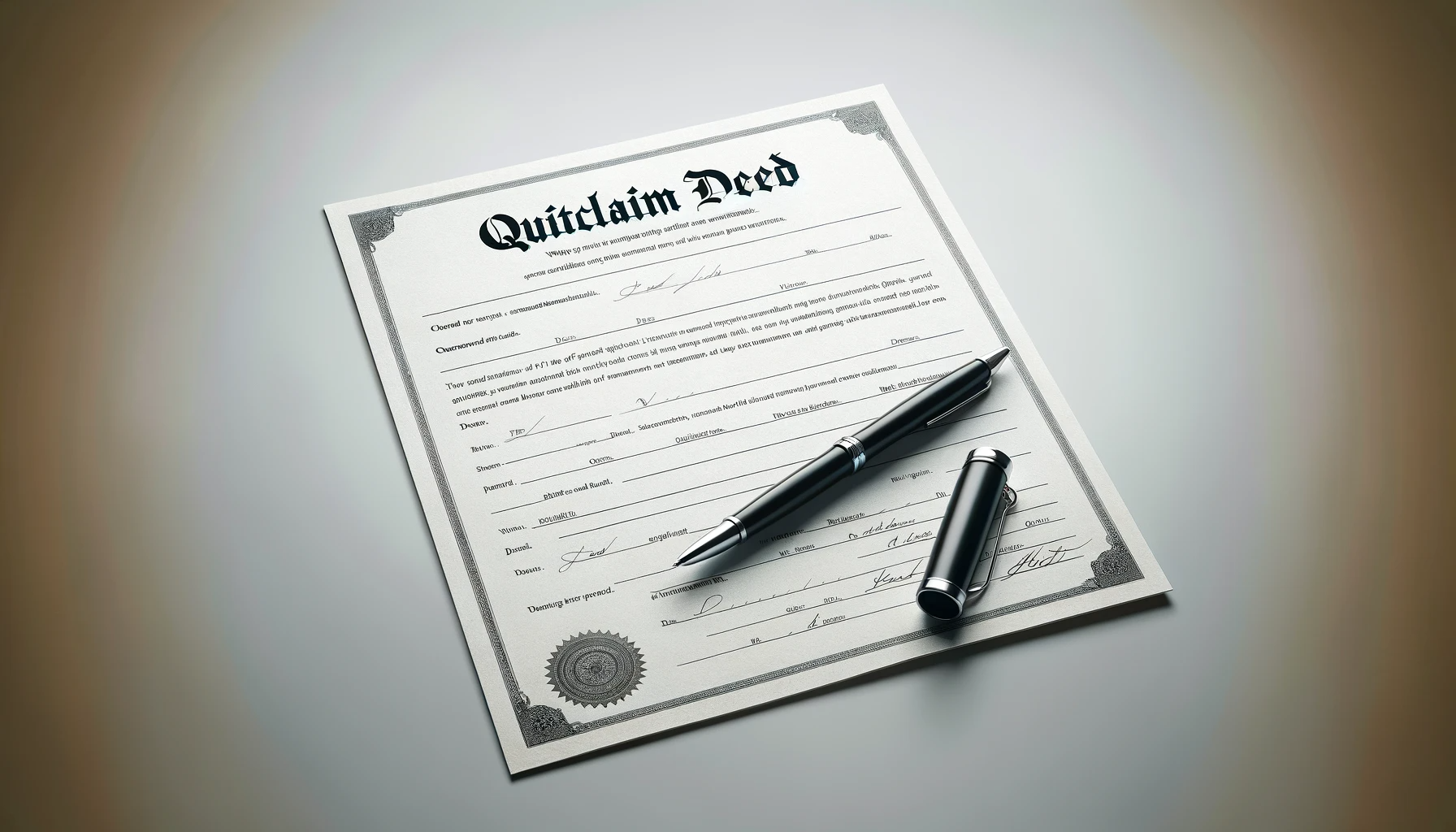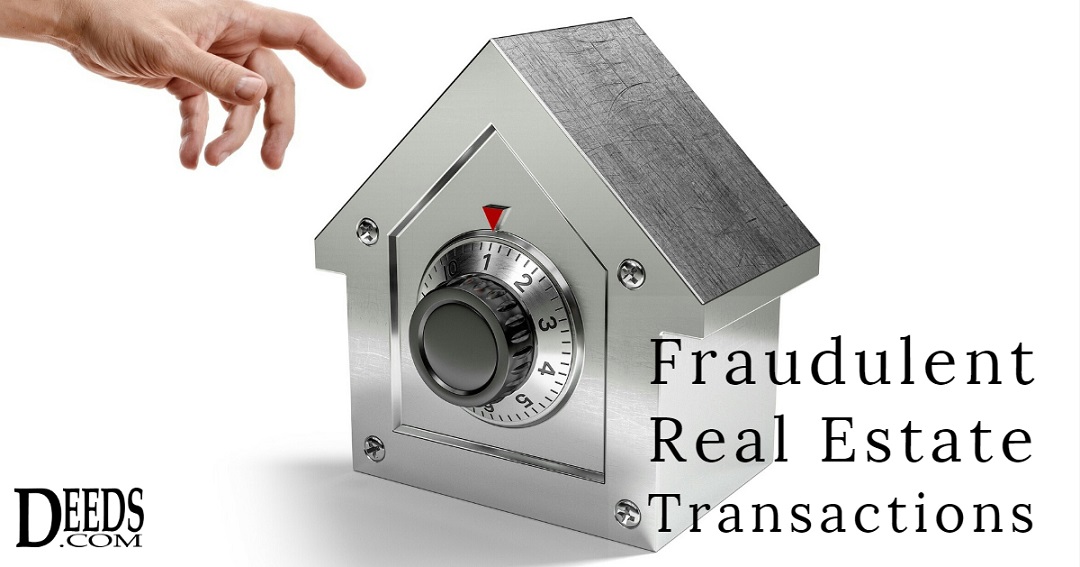Category: Quitclaim Deed
-

Using a Quitclaim Deed: Top 5 Reasons
Are you considering using a quitclaim deed? It’s a fast, simple, and reasonable way to transfer home ownership. It’s a good choice in certain situations. What are those certain situations? In contrast to warranty deeds, which are most often used in regular home sales, a quitclaim would more likely be used: Quitclaiming is a simple,…
-

Is a Quitclaim Deed Subject to Tax?
Quitclaims are sometimes used to transfer property interests from one family member to another, or between divorcing spouses. Parents might wonder if they should use quitclaims to pass property to children to avoid the probate process. It’s easy enough to do. The homeowner signs the document with a notary, takes it to the county recorder…
-

Defending a Quitclaim Deed
The quitclaim is famous for being the simplest way to give up an interest in real estate. Unlike a warranty deed, the quitclaim grants whatever interest a person has to the other person, but offers no assurances that the title is clear. Once a quitclaim is signed and recorded, can the deed be challenged in…
-

Don’t Quit Your Claim! A Quitclaim Deed Is Not a Mortgage Saving or Estate Planning Tool
A quitclaim deed conveys—”quits”—a person’s interest in a property to someone else. Quitclaims prove useful in certain transfers of properties among family members or between divorcing spouses. The quitclaim allows separating partners to follow a court’s direction and leave one party as sole owner of the marital home. Quitclaims might seem convenient in other circumstances, but…
-

Removing Someone from a Real Estate Deed
Removing someone from a deed—is it possible? The short answer: No. Misconceptions and Realities It is a misconception that someone can be “removed” from the deed. Nor can a co-owner simply take away another party’s interest in a property by executing a new deed without that other party. In short, no one can be passively…
-

The Quitclaim Deed and Fraudulent Real Estate Transactions
Quitclaim deeds show up commonly in fraudulent real estate transactions. This type of deed fraud can impact elderly people, buyers purchasing real estate from strangers without warranty, renters who are paying someone who is not a legitimate owner, and anyone involved who might buy, sell, or own property. Here, we examine how it happens and…
-

The Quitclaim Deed’s Function in a Contract for Deed Sale
A contract for deed sale can present a convenient alternative to the traditional real estate conveyance. In this owner-financed deal, the buyer usually lives on the property upon the execution of the contract. While enjoying the property, the buyer pays for it in monthly installments, until the agreed-upon price has been paid in full. Down the road, when full payment…










